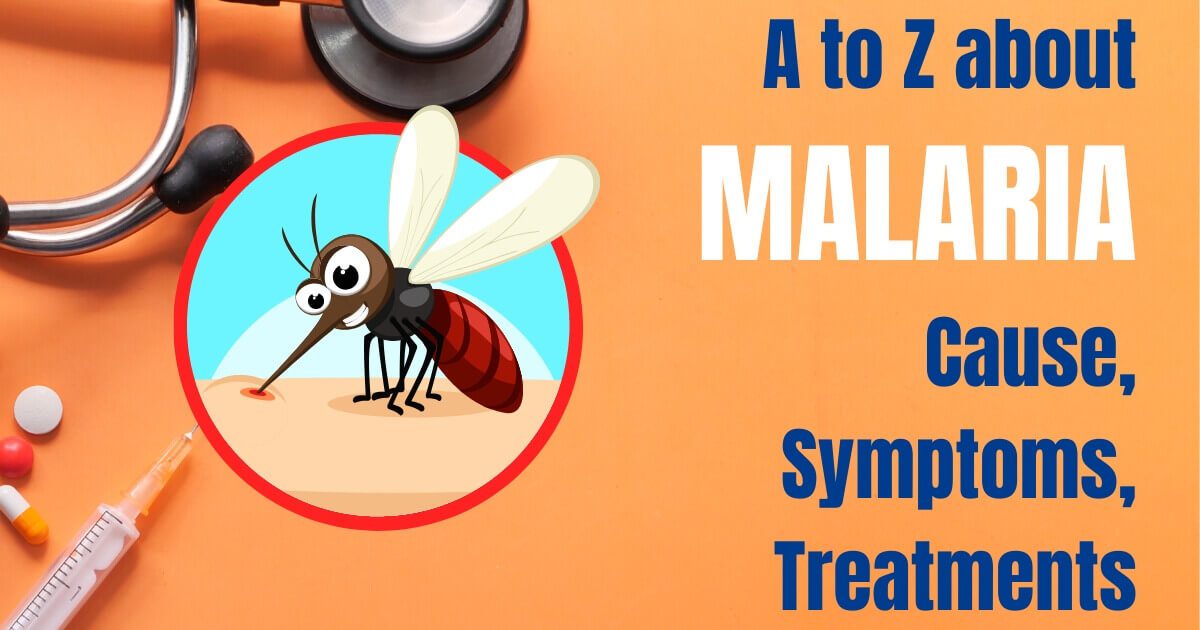Malaria is a serious and potentially life-threatening disease caused by a parasite transmitted through the bite of infected mosquitoes. While pharmaceutical treatments are available, some people may prefer to explore natural remedies. In this article, we’ll explore the effectiveness of various natural treatments of Malaria.
What is Malaria?
Malaria is a serious and sometimes fatal disease caused by the Plasmodium parasite, transmitted to humans through the bite of infected mosquitoes. Malaria is prevalent worldwide in many tropical and subtropical regions, affecting millions yearly.
What are the causes of Malaria?
Malaria is caused by a group of microscopic parasites called Plasmodium. Five species of Plasmodium can infect humans, namely Plasmodium falciparum, Plasmodium vivax, Plasmodium malariae, Plasmodium ovale, and Plasmodium knowlesi.
Malaria is transmitted to humans through the bite of infected female Anopheles mosquitoes. When an infected mosquito bites a person, the parasites in the mosquito’s saliva enter the bloodstream and travel to the liver, where they multiply and mature. After some time, the parasites are released from the liver and invade red blood cells, leading to the characteristic symptoms of Malaria.
Read More: Check Your BMI
Once inside the red blood cells, the parasites continue to multiply and can cause the cells to burst, releasing more parasites into the bloodstream. It leads to cycles of fever, chills, and other flu-like symptoms that characterize Malaria. The severity of Malaria depends on the species of Plasmodium, the infected person’s immunity, and other factors.
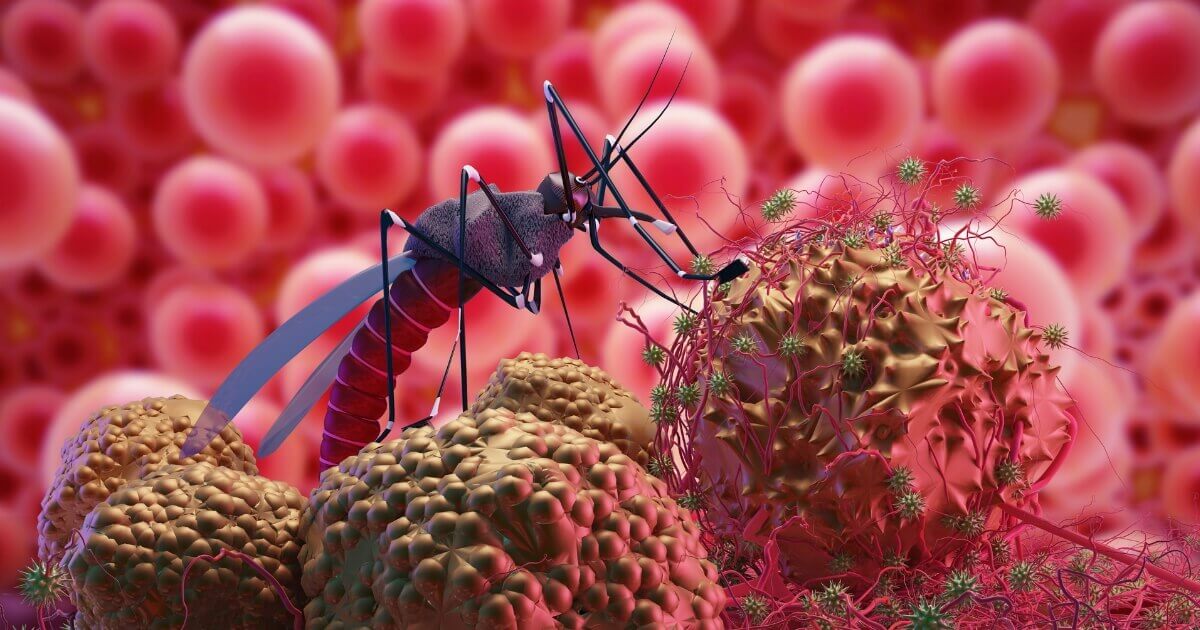
Efforts to control and prevent Malaria focus on measures to reduce mosquito populations, prevent mosquito bites, and provide prompt and effective treatment of malaria to those infected with antimalarial medications. Insecticide-treated bed nets, indoor residual spraying, and other interventions target mosquitoes. In contrast, antimalarial drugs kill the parasites in the bloodstream and prevent further transmission.
What are the risks of Malaria?
Malaria poses significant risks to human health, particularly in areas where the disease is endemic.
Some of the risks associated with Malaria include:
Health complications:
Malaria can cause severe health complications, especially if left untreated. These can include severe anemia, organ failure, respiratory distress, cerebral Malaria (a severe form of Malaria that affects the brain), and even death. Pregnant women and young children are particularly vulnerable to severe Malaria.
Economic burden:
Malaria places a significant economic burden on affected communities and countries. It can result in lost productivity due to illness and death, increased healthcare costs, and reduced economic development in endemic regions.
Impact on vulnerable populations:
Malaria disproportionately affects vulnerable populations. Including pregnant women, young children, and people with weakened immune systems, such as those with HIV/AIDS. It can result in poor maternal and child health outcomes, including low birth weight, prematurity, and increased maternal and infant mortality.
Social disruption:
Malaria can disrupt social structures and communities, often affecting individuals during their most productive years. The loss of family members and caregivers due to malaria-related deaths can have long-term social and emotional impacts on communities, including loss of livelihoods and disruptions to education and social cohesion.
Drug resistance:
The emergence of drug-resistant strains of the malaria parasite is a growing concern. Drug-resistant malaria strains can reduce the effectiveness of antimalarial drugs, making treatment more challenging and increasing the risk of complications and mortality.
Travel and tourism risks:
Travelers to malaria-endemic areas, particularly those without prior immunity, are at risk of contracting Malaria. It can result in travel disruptions, illness, and potential long-term health impacts.
Efforts to control and prevent Malaria, including using insecticide-treated bed nets, indoor residual spraying, early diagnosis, and prompt treatment with effective antimalarial drugs, are critical in mitigating the risks associated with Malaria and reducing its impact on affected communities and individuals.
Types of Malaria: Including Plasmodium falciparum, P. vivax, and P. ovale
Five species of Plasmodium parasites cause Malaria in humans:
Plasmodium Falciparum:
This species is responsible for the most severe form of Malaria and is prevalent in many sub-Saharan African countries. It can cause life-threatening complications, such as cerebral Malaria, which affects the brain, and severe anemia.
Plasmodium Vivax:
This species is widespread in Asia, South America, and the Middle East. It can cause recurrent episodes of Malaria due to its ability to lay dormant in the liver and reactivate later, causing relapses.
Plasmodium Malaria:
This species is found worldwide but is less common than P. falciparum and P. vivax. It usually causes milder symptoms and less severe forms of Malaria.
Plasmodium ovale:
This species is less common than P. falciparum and P. vivax and is mainly found in Africa. It has similar characteristics to P. vivax, including the ability to cause relapses.
Plasmodium Knowlesi:
It is found primarily in Southeast Asia and transmitted from monkeys to humans through mosquito bites. It can cause severe Malaria and has emerged as a significant cause of human Malaria in some regions.
Each Plasmodium species has unique characteristics, including differences in the severity of the disease, relapse patterns, and geographic distribution. Proper identification of the Plasmodium species is crucial for effective diagnosis and treatment of Malaria.
Symptoms: What are the classic signs and symptoms of Malaria?
The symptoms of Malaria include high fever, chills, headache, muscle aches, and fatigue. Malaria can lead to severe complications such as organ failure and death if left untreated.
Malaria is a disease caused by the Plasmodium parasite, transmitted through infected mosquito bites. The symptoms of Malaria include fever, chills, headache, muscle pain, and fatigue. In severe cases, it can lead to organ failure and death. It is important to seek medical attention if you suspect you have Malaria, as early diagnosis and treatment can improve outcomes.
The Importance of Seeking Medical Attention for Malaria:
While natural treatments may provide some relief from the symptoms of Malaria, it is crucial to seek medical attention for proper diagnosis and treatment. Malaria can be life-threatening, and delaying medical treatment can lead to serious complications. Medical professionals can provide antimalarial medications specifically designed to treat the disease and prevent its spread. It is important to follow the advice of healthcare professionals and take all prescribed medications as directed to ensure a full recovery.
Treatments of Malaria: How is Malaria treated, and what are the possible side effects?
Malaria is typically treated with antimalarial medications that target the Plasmodium parasites causing the infection. The choice of medication and treatment duration depends on the species of Plasmodium, the disease’s severity, the patient’s age and weight, and any other medical conditions the patient may have. Commonly used antimalarial medications include artemisinin-based combination therapies (ACTs), chloroquine, mefloquine, atovaquone-proguanil, and primaquine.
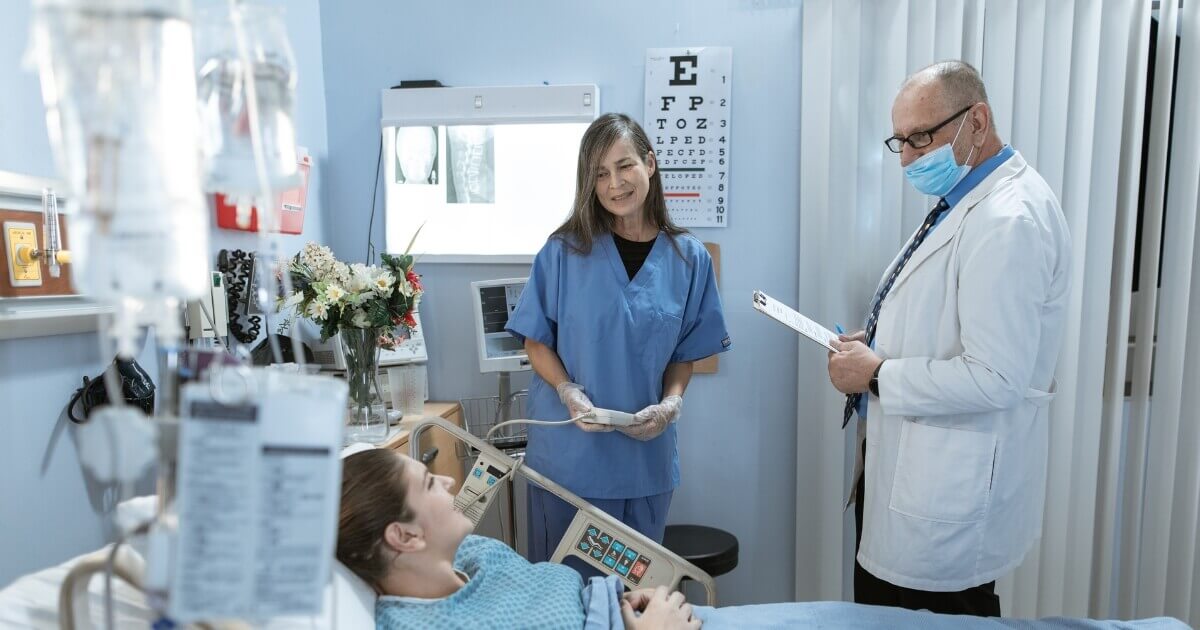
The treatment of Malaria aims to clear the parasites from the bloodstream and prevent complications. Antimalarial drugs work by inhibiting the growth and replication of the parasites or by killing them at various stages of their life cycle. The duration of treatment can vary from a few days to several weeks, depending on the medication and the severity of the infection.
Possible side effects of antimalarial medications can vary depending on the specific drug used but may include:
Nausea, vomiting, and diarrhea are common side effects of many antimalarial drugs, especially when taken on an empty stomach. Taking the medications with food can help reduce these side effects.
Headache and dizziness:
Some antimalarial drugs can cause headaches and dizziness, which can be managed by drinking plenty of fluids and avoiding sudden changes in position.
Skin rash:
Rash or itching may occur as a side effect of certain antimalarial medications. This may require medication discontinuation and consultation with a healthcare provider if severe.
Gastrointestinal upset:
Antimalarial medications can sometimes cause stomach upset, abdominal pain, and other gastrointestinal symptoms.
Hematological side effects:
Some antimalarial drugs, such as primaquine, can cause hematological side effects, including anemia, low platelet count, and low white blood cell count. Regular monitoring of blood counts may be required during treatment.
Allergic reactions:
Rarely, severe allergic reactions may occur in response to antimalarial medications, and immediate medical attention should be sought if any signs of an allergic reaction, such as difficulty breathing, rash, or swelling, occur.
It’s important to follow the prescribed treatment regimen and promptly report any side effects to a healthcare provider. Sometimes, alternative medications may need to be considered for severe or persistent side effects. It’s also crucial to complete the full course of treatment as prescribed, even if symptoms improve, to ensure complete clearance of the parasites and prevent the development of drug resistance.
Prevention: What can be done to prevent Malaria?
Preventing Malaria involves avoiding mosquito bites and taking antimalarial medications as prophylaxis in certain high-risk areas.
Here are some key preventive measures:
Use insecticide-treated bed nets:
Sleeping under insecticide-treated bed nets can significantly reduce the risk of mosquito bites during the night when the Anopheles mosquitoes that transmit Malaria are most active. Bed nets should be properly used and maintained to ensure effectiveness.
Apply insect repellents:
Using mosquito repellents on exposed skin and clothing can provide additional protection against mosquito bites. Repellents containing DEET, picaridin, or IR3535 are commonly used and effective. Follow the instructions on the product label for safe and effective use.
Wear protective clothing:
Wearing long-sleeved shirts, long pants, and socks can provide a physical barrier against mosquito bites. Light-colored clothing is preferable, as mosquitoes are often more attracted to dark colors.
Use indoor residual spraying (IRS):
Indoor residual spraying with insecticides can effectively reduce the number of mosquitoes indoors and prevent malaria transmission. Trained professionals in high-risk areas typically carry it out.
Take antimalarial medications:
Travelers to malaria-endemic regions may need to take antimalarial medications as prophylaxis, depending on the risk level of the area and the duration of stay. The choice of medication and dosing should be based on current guidelines and individual factors. It should be obtained with a prescription from a qualified healthcare provider.
Seek early diagnosis and treatment:
If you develop symptoms suggestive of Malaria, such as fever, headache, chills, and muscle aches, especially after traveling to a malaria-endemic area, seek prompt medical attention for diagnosis and treatment.
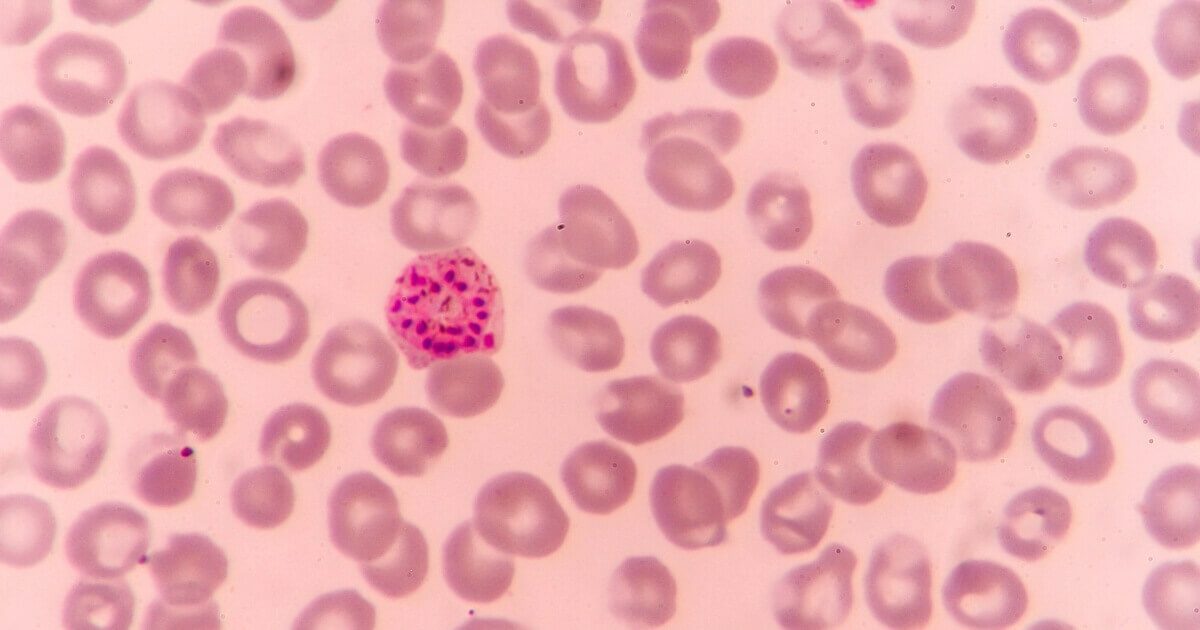
Drain standing water:
Mosquitoes breed in standing water, so eliminating standing water around your living and working areas, such as in stagnant pools, puddles, and containers, can help reduce mosquito populations.
Take additional precautions for high-risk populations:
Pregnant women, young children, and individuals with weakened immune systems are at higher risk of severe Malaria and may require additional preventive measures or close monitoring. Consult with a healthcare provider for specific recommendations.
Read More: Pneumonia Treatments
It’s important to note that malaria prevention strategies may vary depending on the geographic location, transmission intensity, and local resistance patterns and should be tailored to the area’s specific risk factors and recommendations. Consult with a healthcare provider or a travel health specialist for personalized advice on malaria prevention.
Natural Treatments for Malaria: Herbal Remedies and Supplements
While there is no cure for Malaria, there are natural treatments that may help alleviate symptoms and support the body’s immune system. Some herbal remedies and supplements studied for their potential effectiveness against Malaria include artemisinin, quinine, and ginger. However, it is important to note that these natural treatments should not be used as a substitute for medical treatment and should only be used under the guidance of a healthcare professional.
Some common medication helps in the treatments of Malaria
Several medications are commonly used in the treatments of Malaria. The choice of medication depends on the species of Plasmodium causing the infection, the disease’s severity, the patient’s age and weight, and any other medical conditions the patient may have.
Some common medications used in the treatments of Malaria include:
Artemisinin-based combination therapies (ACTs):
ACTs are considered the first-line treatment for uncomplicated Malaria caused by Plasmodium falciparum, the most severe form of Malaria. ACTs typically contain an artemisinin derivative, rapidly reducing the number of parasites in the bloodstream, combined with a longer-acting antimalarial drug to prevent recrudescence (reinfection).
Chloroquine:
Chloroquine is an antimalarial drug widely used in the past but is now mainly used in regions where Plasmodium vivax and Plasmodium ovale are still susceptible. However, chloroquine resistance has emerged in many parts of the world, and alternative medications are often used.
Mefloquine:
Mefloquine is an antimalarial drug used for both the prevention and treatment of Malaria. It is commonly used in areas with known resistance to other antimalarial drugs. However, it may have side effects and is not recommended for certain populations, such as pregnant women and individuals with psychiatric conditions.
Atovaquone-proguanil:
This combination medication is used for the treatment and prevention of Malaria caused by Plasmodium falciparum. And uncomplicated Malaria caused by Plasmodium vivax. It is generally well-tolerated and is often used as an alternative to other antimalarial drugs, particularly in travelers.
Primaquine:
Primaquine treats and prevents relapsing Malaria caused by Plasmodium vivax and Plasmodium ovale. It is effective in killing dormant liver-stage parasites and preventing relapses. It is often used in combination with other antimalarial drugs.
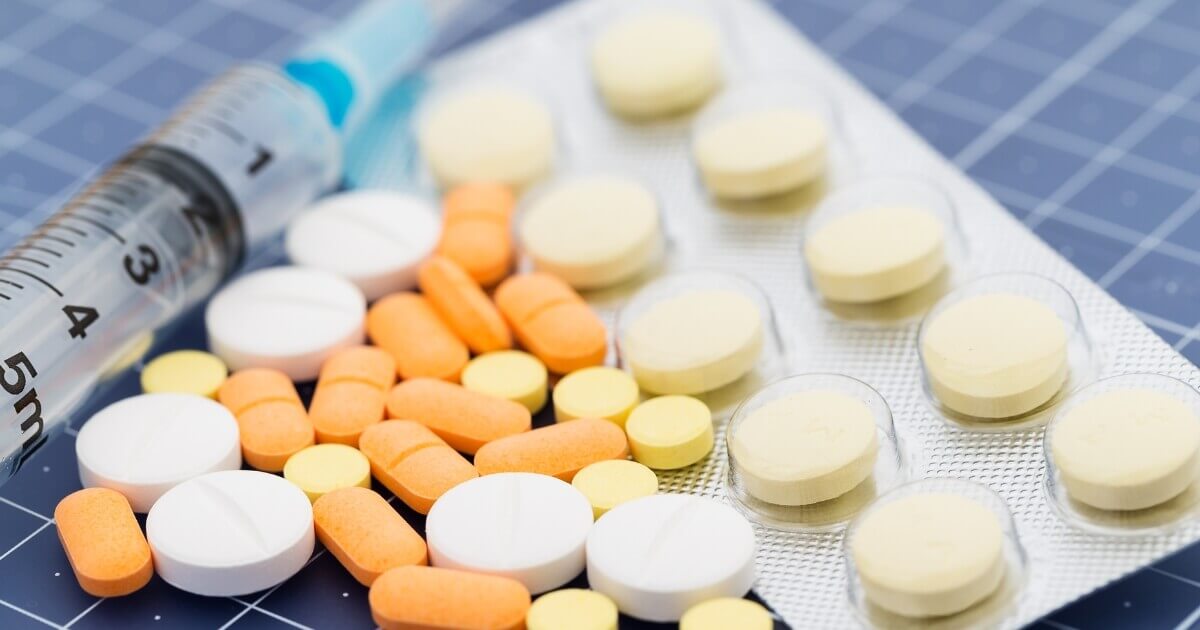
It’s important to note that antimalarial drugs should be prescribed and administered by qualified healthcare professionals. The choice of medication should be based on current treatment guidelines and individual patient factors. Drug resistance is a concern in some regions. Appropriate dosages and treatment durations should be followed to ensure optimal effectiveness in treating Malaria.
The Role of Diet and Lifestyle Changes in Treatments of Malaria
While natural treatments like herbal remedies and supplements may help alleviate symptoms of malaria, diet and lifestyle changes can also play a role in treatment. Eating a balanced diet rich in nutrients and staying hydrated can help support the body’s immune system.
Additionally, getting enough rest and reducing stress can help improve overall health and aid in recovery from Malaria. However, it is important to note that these changes should not be used as a substitute for medical treatment but only in conjunction with proper medical care.
Conclusion: Natural Treatments Can Be Effective But Should Be Used in Conjunction with Treatments of Malaria
While natural treatments of Malaria may relieve symptoms, they should not be used as a substitute for medical treatment. Seeking medical attention and following the advice of healthcare professionals is crucial for the proper diagnosis and treatment of Malaria.
However, incorporating natural treatments such as herbal remedies and essential oils may provide additional support and relief. Discussing natural treatments with a healthcare professional before use is important, as they may interact with prescribed medications or have potential side effects.
Source: Google, Wikipedia, and WHO
==========
Thanks for reading this article. If you have any information related to this article and blog, you can comment or visit the contact us page.
You can also visit the Competitive Exams-related Blog: Learn For Exam
and Popular quotation related Blog: A to Z Quotes
==========

